Introducing
Obstetric MR™
Mixed Reality Training
System
Introducing
Obstetric MR™
Mixed Reality Training
System
Introducing
Obstetric MR™
Mixed Reality Training
System
The future of labor and delivery simulation is here.
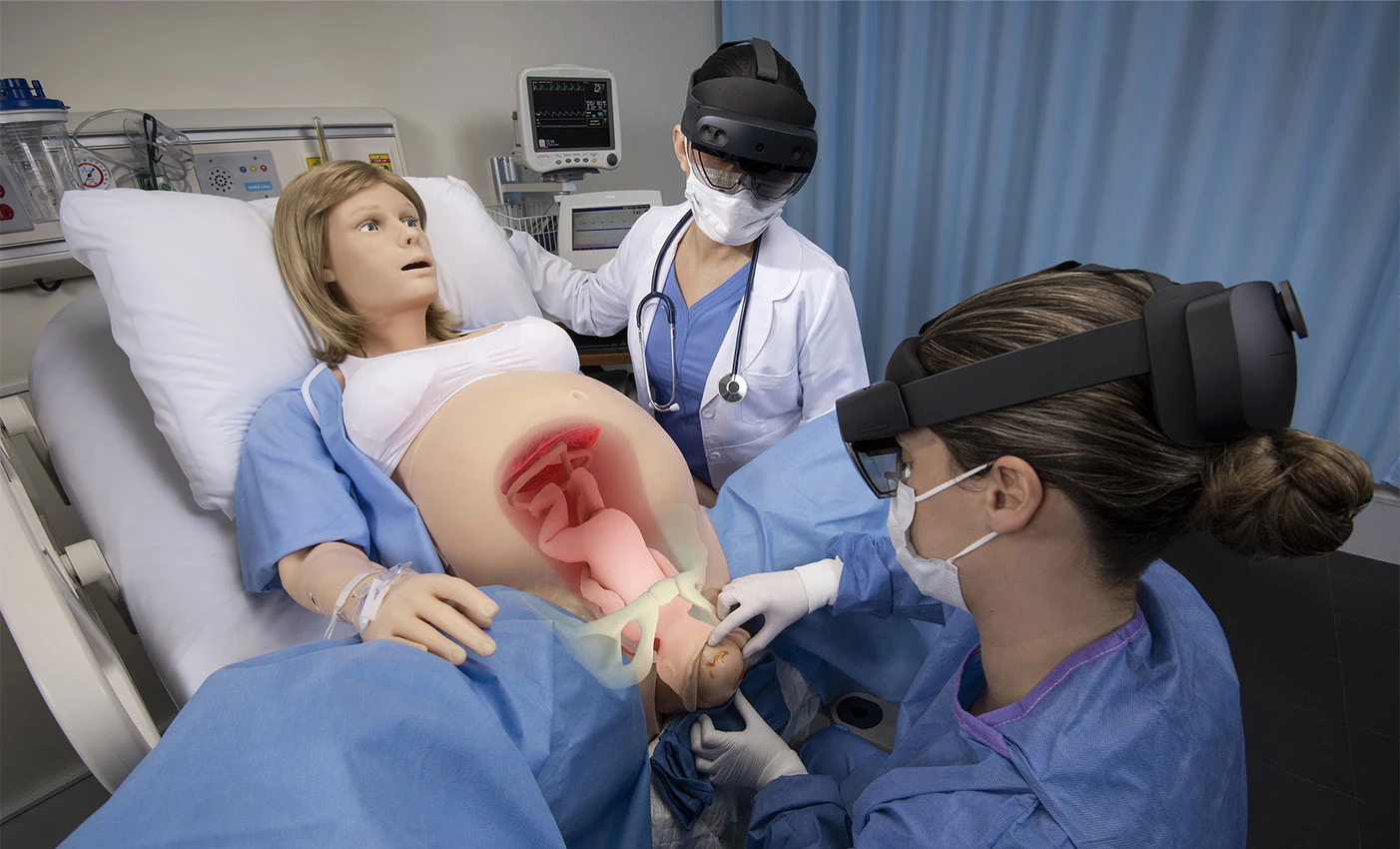
Obstetric MR™ is a next-generation mixed reality training solution for VICTORIA® S2200 designed to help learners bridge the gap between theory and practice faster than ever before. Using the latest technology in holographic visualization, Obstetric MR brings digital learning content into the physical simulation exercise, allowing participants to link knowledge and skill through an entirely new hands-on training experience.
The future of labor and delivery simulation is here.
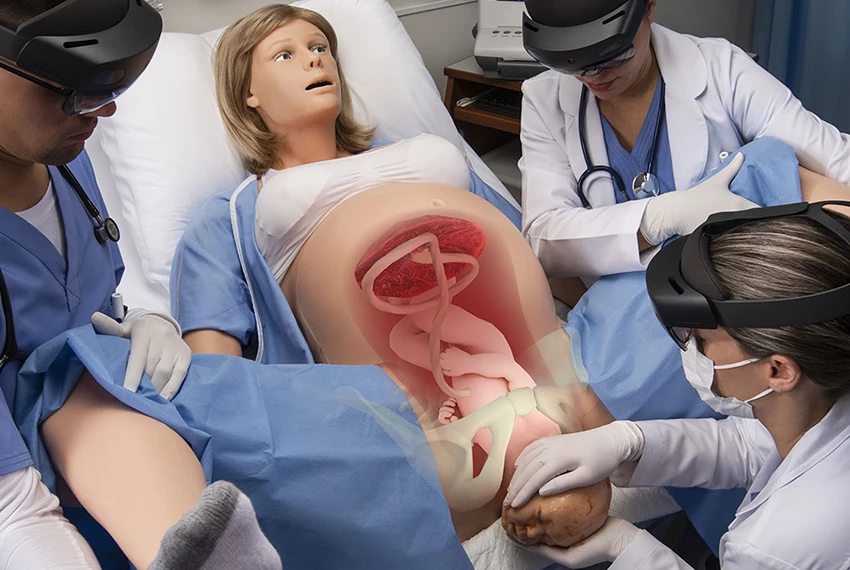
Bridging the gap between theory and practice.
By synchronizing holograms with the physical world, Obstetric MR allows learners to see inside VICTORIA and observe the dynamic physiology underlying difficult deliveries to promote deeper learning. Wireless connectivity supports up to 6 participants, with each observing their unique vantage point.

Bridging the gap between theory and practice.
By synchronizing holograms with the physical world, Obstetric MR allows learners to see inside VICTORIA and observe the dynamic physiology underlying difficult deliveries to promote deeper learning. Wireless connectivity supports up to 6 participants, with each observing their unique vantage point.
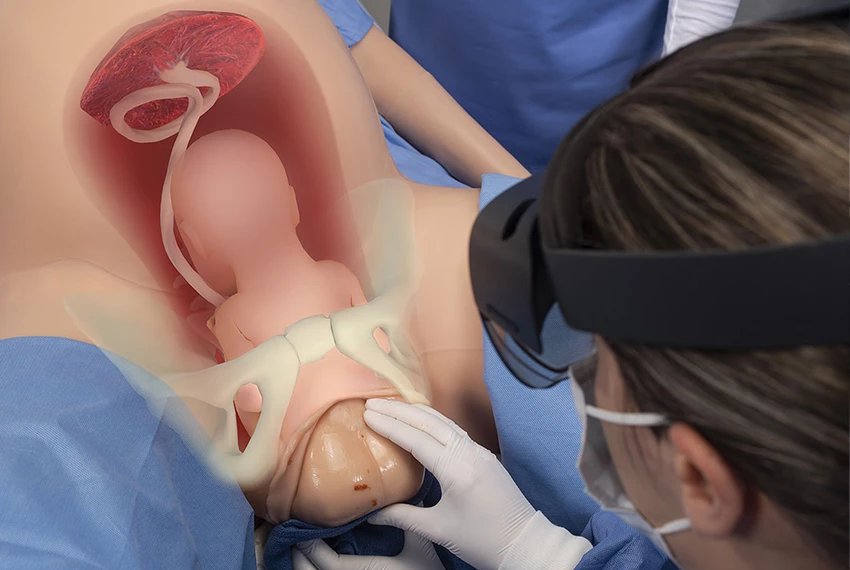
Seamless and powerful scenario integration.
Obstetric MR adds a new layer of learning to normal vaginal birth, shoulder dystocia, and breech scenarios. It integrates seamlessly with VICTORIA’s new Simulation Learning Experiences childbirth scenarios as well as your custom scenarios and on-the-fly operation.
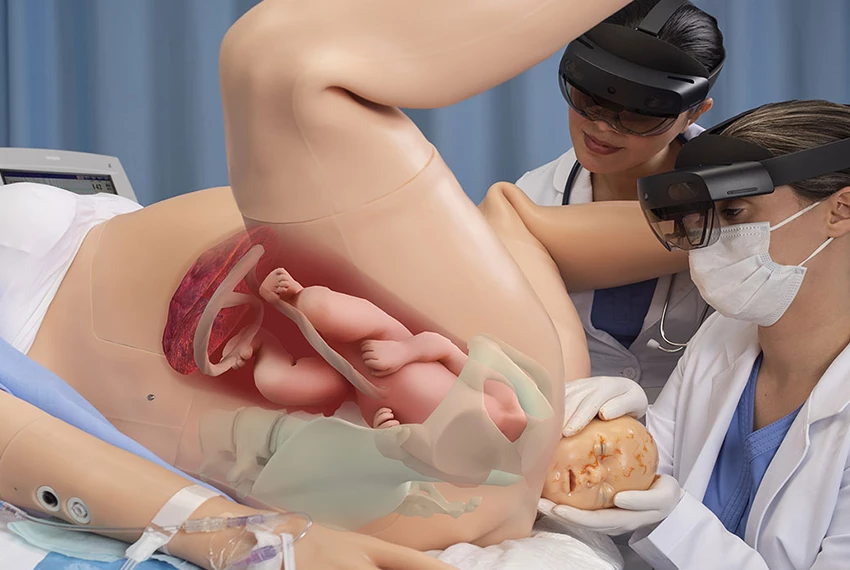
Observe clinical intervention in real-time.
Obstetric MR, VICTORIA’s internal network of sensors, and the powerful UNI® control software work together to provide learners with real-time visual feedback. Learners can study the rotation of the pelvis and the fetal shoulder during McRoberts and suprapubic pressure maneuvers as they perform them. It is an entirely new way to observe and understand clinical cause and effect through hands-on practice.
Seamless and powerful scenario integration.
Obstetric MR adds a new layer of learning to normal vaginal birth, shoulder dystocia, and breech scenarios. It integrates seamlessly with VICTORIA’s new Simulation Learning Experiences childbirth scenarios as well as your custom scenarios and on-the-fly operation.


Observe clinical intervention in real-time.
Obstetric MR, VICTORIA’s internal network of sensors, and the powerful UNI® control software work together to provide learners with real-time visual feedback. Learners can study the rotation of the pelvis and the fetal shoulder during McRoberts and suprapubic pressure maneuvers as they perform them. It is an entirely new way to observe and understand clinical cause and effect through hands-on practice.
The control you need in one place.
Run a scenario, change the Obstetric MR learning mode for all participants, send private messages, and much more right from the UNI software. Obstetric MR controls are integrated into UNI, making operation intuitive and simple.
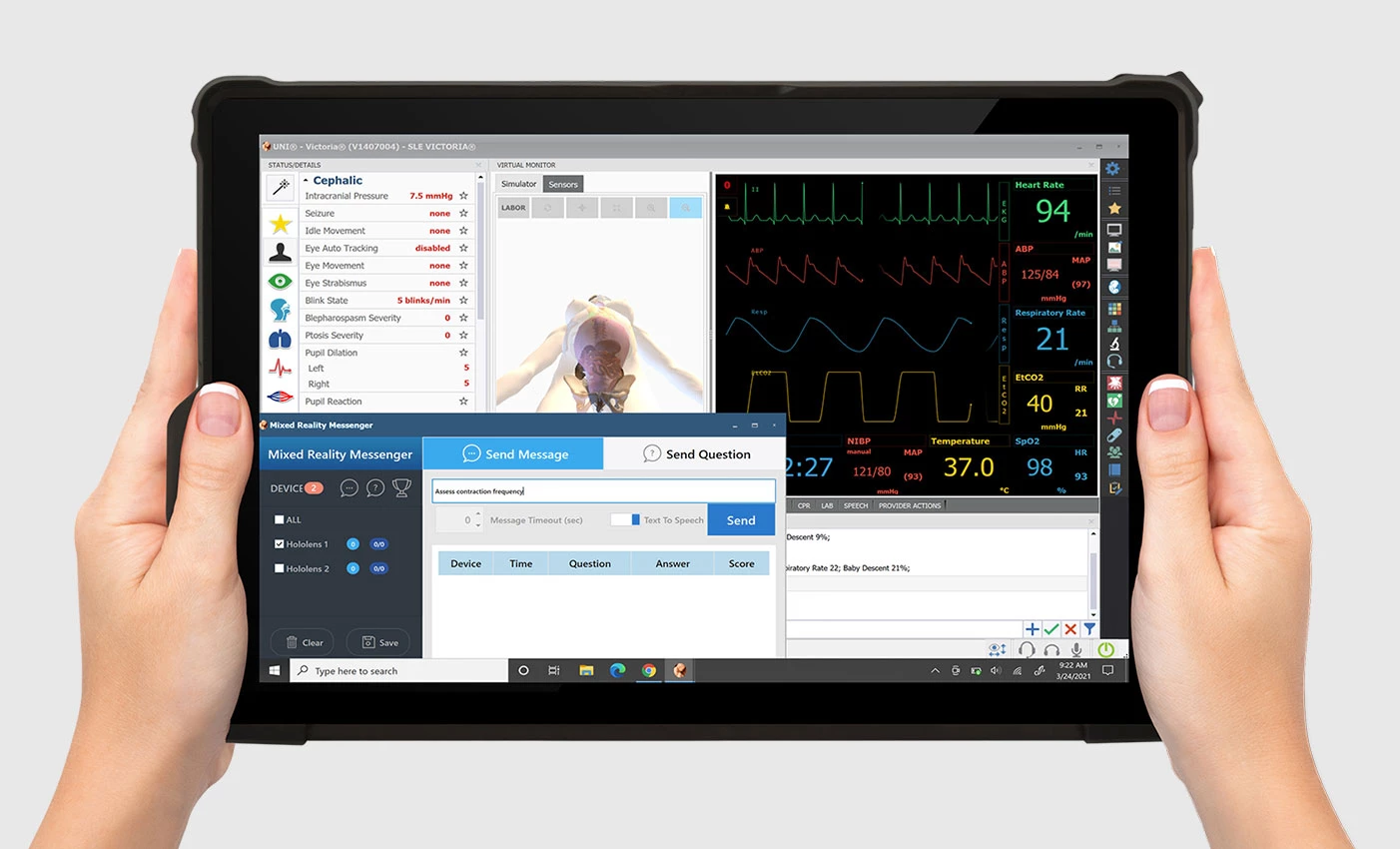
The anatomy lab reimagined in mixed reality.
Obstetric MR features four holographic childbirth demonstrations: normal vaginal delivery, shoulder dystocia, breech, and nuchal cord. Each experience features key learning points learners can study at their own pace. Unlike video and static physical models, holograms can be viewed from any angle, scaled to a life-size, or scaled-down on a desk.
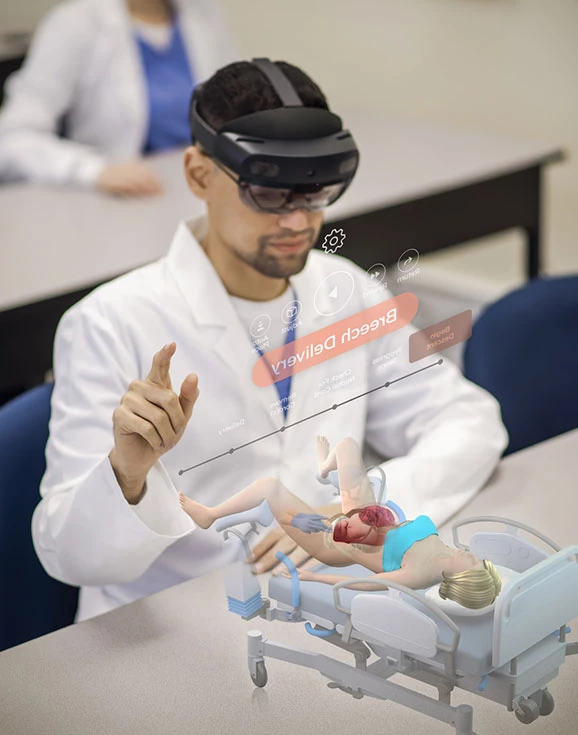
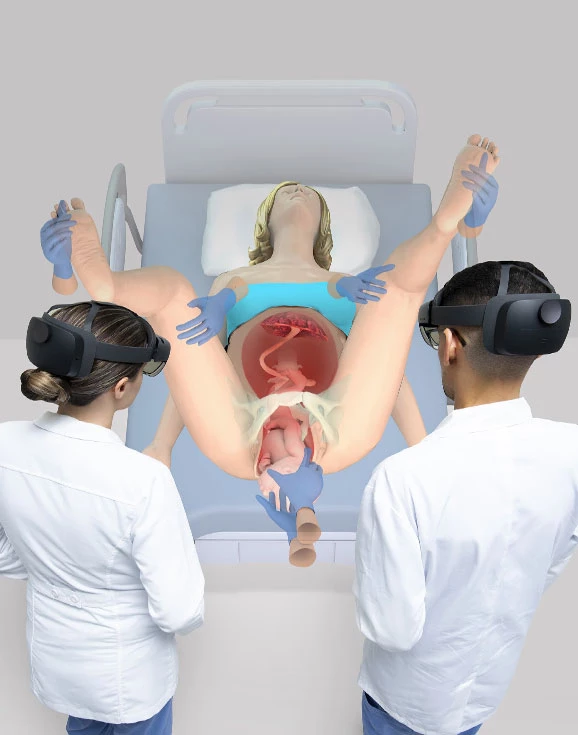
Enhanced debriefing tools.
More opportunities for learning.
Record the learner's point-of-view for playback and debriefing, stream the live feed onto a large screen for the rest of the class to see, or record an educator's demonstration for remote learning. HoloLens 2 features built-in HD cameras that allow you to leverage audio/video recording in multiple ways to maximize training.
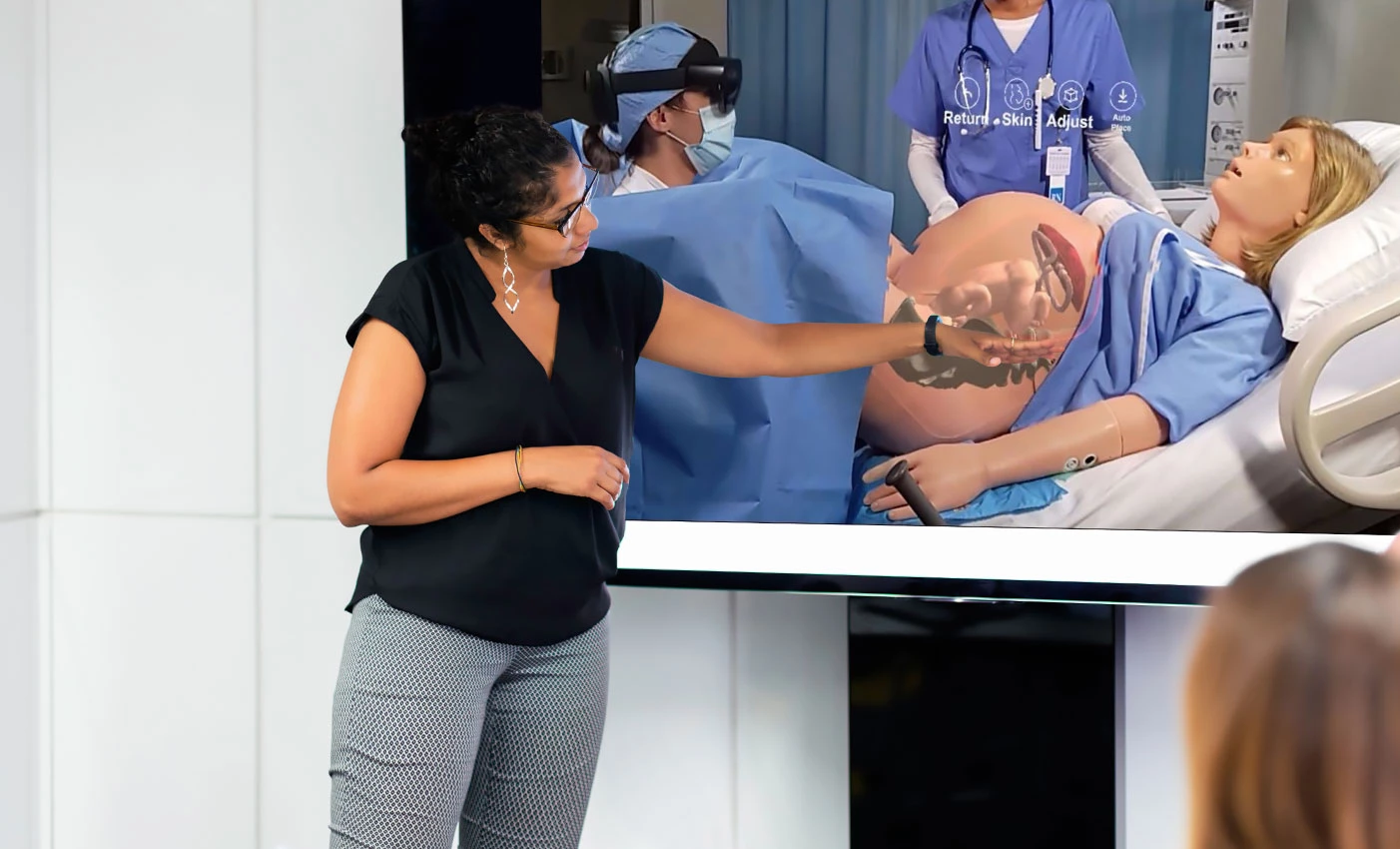
Hello, meet your patient for today’s exercise.
Obstetric MR’s Tour Mode is designed to help learners and staff familiarize themselves with VICTORIA’s anatomical and physiological features before the start of a scenario. Tour Mode is simple to use and can be set up anywhere.
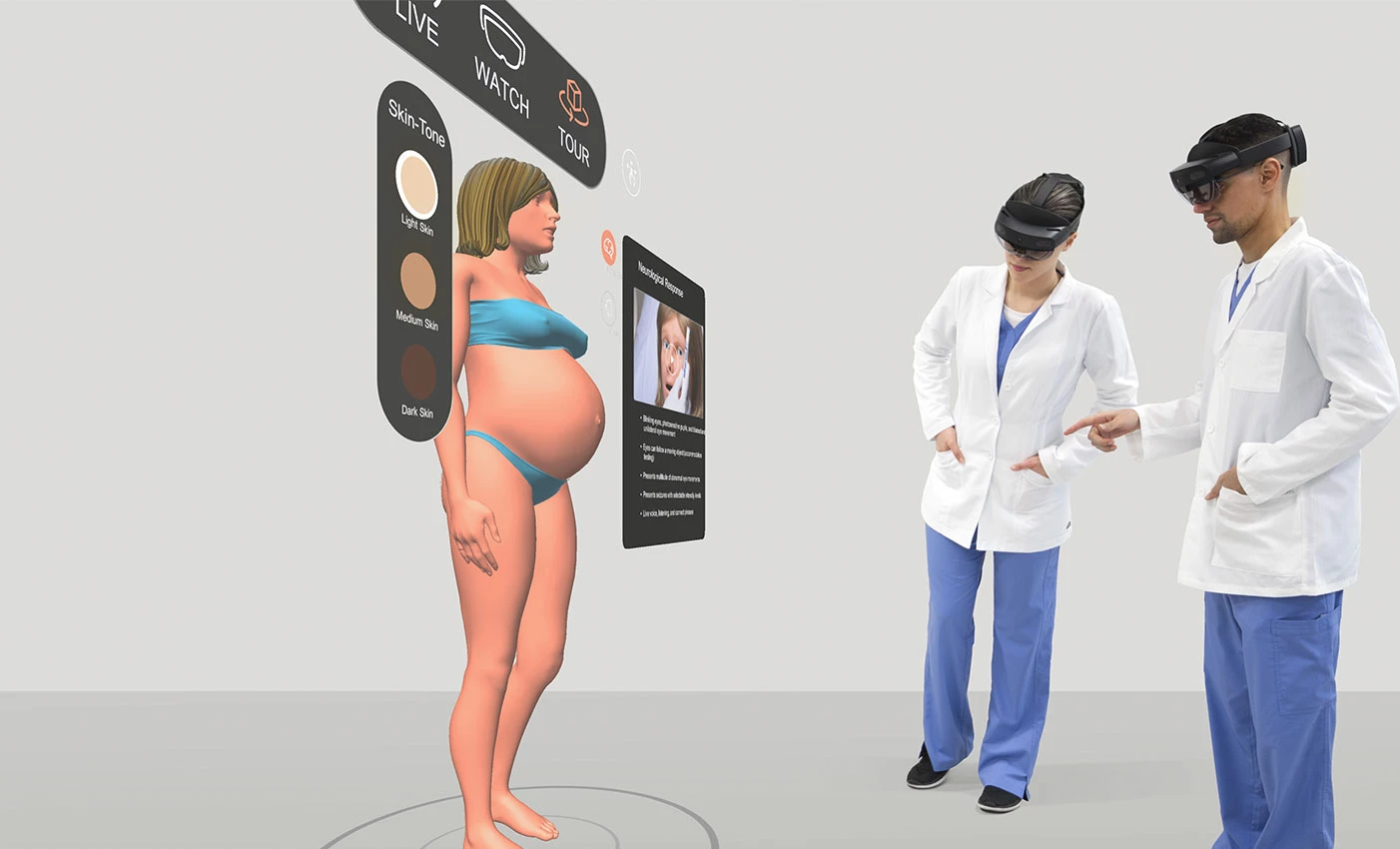
Upgrade your VICTORIA® S2200 with Obstetric MR, today.
Obstetric MR was developed from the ground up for HoloLens 2 and works with all VICTORIA models. There is no complicated hardware setup required. Self-install and configuration are simple.
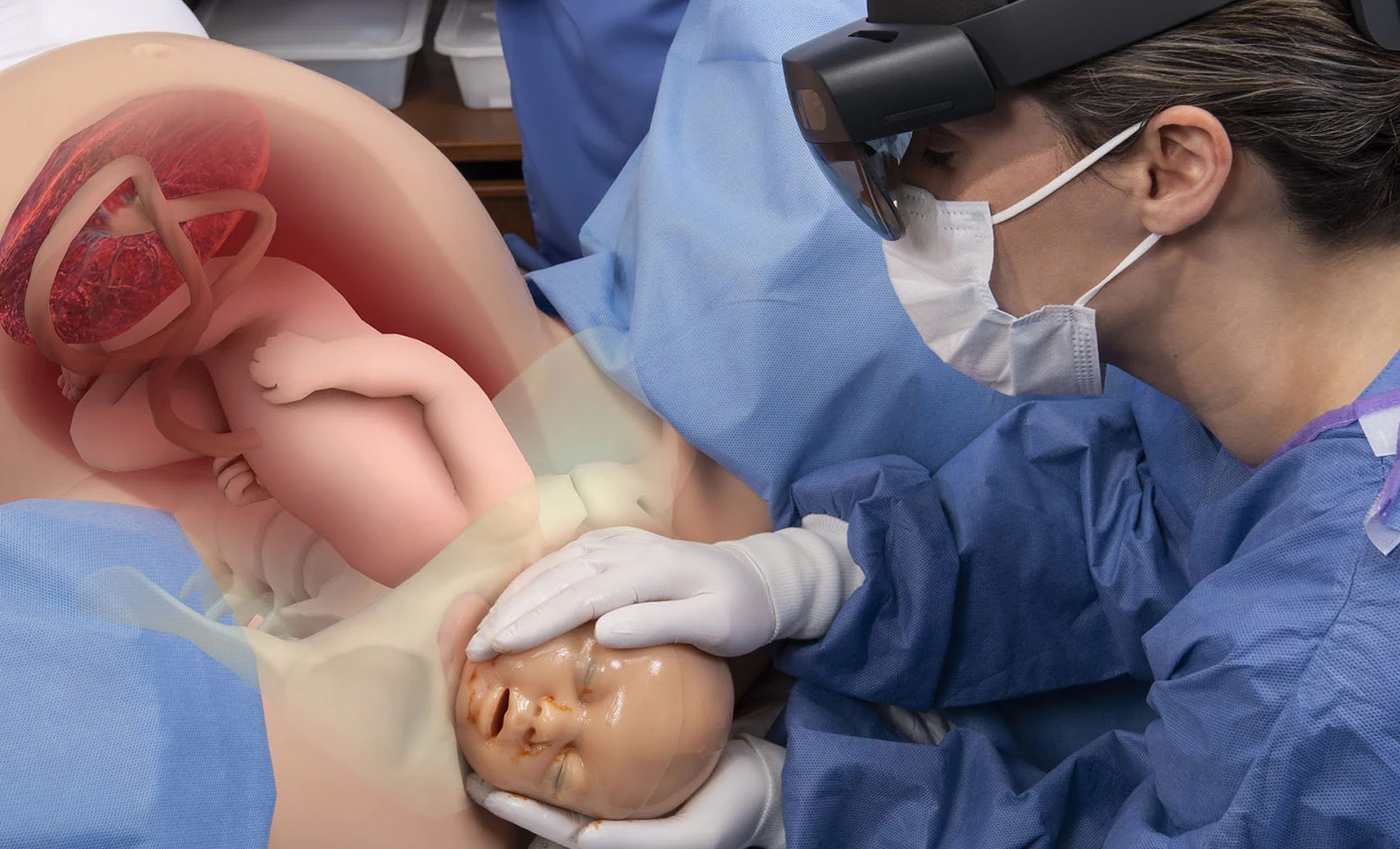
Obstetric MR™
Mixed Reality System for VICTORIA® S2200
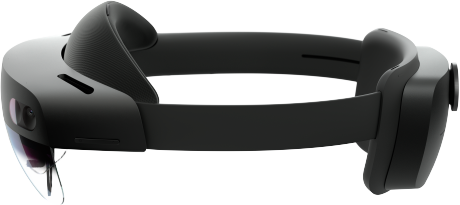
Package includes HoloLens 2 mixed reality headset computer preloaded with Obstetric MR™, Obstetric MR participant user license, and accessories.
Obstetric MR is not intended to replace a comprehensive understanding of the subject matter required to support clinical decision-making in real-life situations. Additional terms and conditions apply. Images on this page are for illustration purposes only. Hardware and graphics may differ from the images shown. The Obstetric MR app is compatible with HoloLens 2. HoloLens 2 is not available in all countries. HoloLens 2 wireless streaming features require a Microsoft HDMI wireless receiver or compatible Smart TV. All trademarks and/or copyright materials are the property of their respective owners. HOLOLENS is a trademark of Microsoft Corporation.
Tech Support
Connect to a Gaumard
Representative
Download User Guides
Get the current User Guides
for your products
Gaumard Software
Download the latest software
and updates

